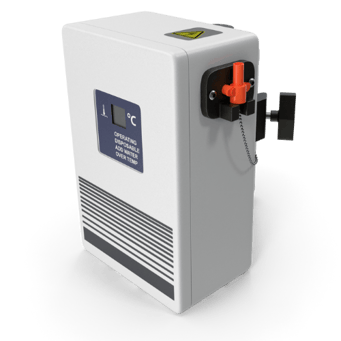RESOURCES
Case Study: CF Leakage Compliance for Emergency Medical Devices
 Maintaining Compliance with CF Leakage Regulations for Emergency Medical Equipment
Maintaining Compliance with CF Leakage Regulations for Emergency Medical Equipment
EMS devices must adhere to strict regulations, similar to medical home use devices, such as IEC 60601-1-12, Class B EMC, and Class II input requirements. An example application of EMS devices necessitating CF leakage compliance is fluid and blood warmers. These devices play a crucial role in preventing hypothermia during fluid administration over extended transport durations. They are available in portable options, powered by either batteries or an AC adapter to ensure continuous warming capabilities. The ability to seamlessly switch between battery and AC power enhances device usability by extending operation time and providing warm fluids during EMS transport.
Download Case StudyChallenges in Power Management
Cardiac Floating (CF) isolation is essential for medical devices to prevent AC power from potentially reaching a patient's heart or bloodstream. Traditionally, fluid and blood-warming devices have depended on battery power, but the increasing demand for longer operation times has created a need for a CF-compliant AC connection. Extending power run times without significantly altering the device's form factor has become a valuable advantage in the medical electronics field. There are various ways to increase power duration in medical devices while adhering to industry standards, but manufacturers must be wary of potential changes to the form factor. For example, using a transformer to extend power duration can result in increased size and weight, requiring more space. Alternatively, AC-DC power supplies with isolation circuitry may meet isolation requirements but can add cost and size. In this changing environment, finding solutions that balance efficiency, reliability, and compliance with industry standards is crucial. With Astrodyne TDI's expertise in creating CF-compliant AC-DC power supplies, medical device manufacturers can improve power efficiency without sacrificing safety or incurring unexpected testing costs. Their dedication to providing dependable power solutions allows manufacturers to concentrate on product design without the worry of additional expenses.
The primary goal of this design endeavor was to:
- Prevent the necessity for substantial alterations to the device's dimensions, weight, or overall size.
- Ensure adherence to industry regulations such as IEC 60601-1-12, Class B EMC, and Class II input standards without incurring unforeseen expenses for safety and EMC testing.
- Enhance both the reliability and safety of patients while optimizing operational run times.
- Minimize the reliance on in-house engineering resources to expedite product launch timelines.
 Astrodyne TDI's Innovative Approach
Astrodyne TDI's Innovative Approach
In addition, the Astrodyne TDI team excels in creating AC-DC power supplies that not only meet BF compliance with downstream isolation circuits but also emphasize improved efficiency and increased reliability to satisfy the stringent demands of the medical industry, such as IEC60601-1-11 for home use and IEC60601-1-12 for EMS devices. Their AC-DC power supplies incorporate CF isolation with built-in components, ensuring exceptional safety standards. The WSZ8 and EDP400 series feature a non-grounded input and adhere to EMC standards, particularly Class B EMC. With a commitment to innovation, Astrodyne TDI integrates transformers and other components into their power solutions, allowing medical device manufacturers to focus on refining their product designs without the concern of additional costs.

